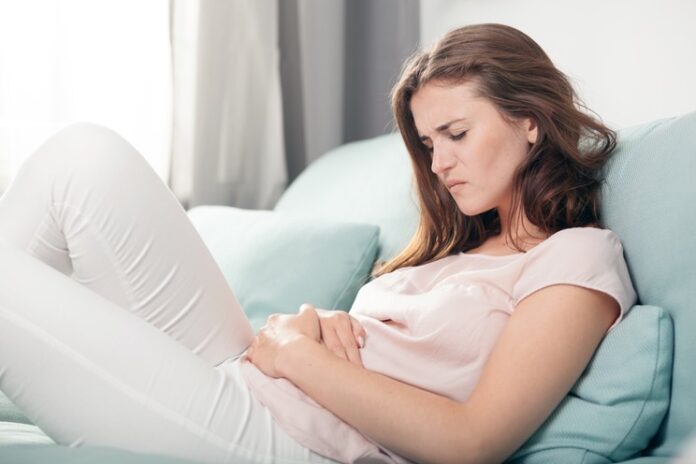Menstruation is a nuisance for many women. Others may find it so painful that it interferes with their daily activities, such as going to school or work.
Menstrual cramps, also known as period pain, are the main cause of this disruption. Although over-the-counter medications can relieve painful cramps, this article will discuss natural remedies that are more suitable for long term use.
Table of Contents
What causes agonizing periods?
Pain and discomfort are caused by the expulsion of the uterine lining from the body. Some people experience pain and cramps that are more severe, even comparing it to a heart attack. Why do they become so uncomfortable?
The contraction of the uterine wall compresses blood vessels within them, preventing oxygen from reaching the cells. This causes pain in the body, because cells need oxygen to survive. Prostaglandin is a hormone-like compound that causes the uterine muscle to contract and cause a dull pain or throbbing. The pain can radiate to the lower abdomen, thighs and back. It can even last for several days.
Pre-existing conditions can also cause pain, such as fibroids (benign tumors in the uterus), or endometriosis. (This is when the uterine walls grow in the fallopian tube or the ovaries). These conditions will require specialist treatment to alleviate the pain.
These remedies can help with severe periods pain, whether you have a condition or not.
1. Warmth
Applying heat to the lower back and abdomen is one of the most common ways to relieve pain. It can also relax the uterine muscle contractions. Use a heating pad, hot water bottle or hot towel to soothe aches and discomfort. A warm bath can also help to soothe aches and discomforts throughout the body. Addition of oils such as lavender can help you relax and forget the pain.
Even hot drinks can be beneficial, as they increase blood circulation to the skin. They also relax muscles that are cramped. Avoiding alcohol and caffeinated beverages will help to reduce water retention and bloating during your period. Instead, opt for herbal teas that are warming and hydrating.
2. Dietary
Continued from the previous point: avoid foods that cause bloating, such as soft drinks, because this can put extra pressure on your abdomen. Irritable Bowel Syndrome (IBS), which can cause period pain and vice versa, is a combination of two very uncomfortable conditions. If you are aware of the foods that trigger your IBS, try to avoid them. Foods like wheat, beans and onions can cause excess bloating for anyone, even if they don’t have IBS. Avoiding these foods during your period will help ease the pain.
3. Workout
Some of you may have laughed at the title, but some studies show that light exercise can reduce period pain. You might not want to exercise when your period comes, but you may see benefits if you do.
Walking or yoga, which are gentler forms of exercise than jogging and cycling, can ease your pain. Stretching might not seem to have much of an impact on your body, but increased blood flow from stretching helps transport oxygen more effectively to the cells. Even small amounts can cause the release of endorphins, which are natural painkillers.
Yoga is a great way to stay fit and healthy during your period.
4. Ginger
Ginger root has natural anti-inflammatory properties. It can also help relieve period pain by lowering the level of prostaglandins. This can help to relieve nausea and stomach upsets that some women experience during their menstruation.
Add ginger to your diet to get more benefits. You can make ginger tea with a little grated ginger in a cup of hot water and lemon or add a tiny piece to your morning smoothie or shake. You can add daily Ginger supplements if you cannot stand the taste.
5. Calcium and Magnesium
Both calcium and magnesium play a role in normal muscle contraction and function. They are frequently taken together. Also, they have an impact on the smooth muscles in the uterus where cramps occur. Magnesium deficiency is another cause of painful periods.
In one study, calcium supplements were found to improve mood, concentration, and behavior in women who are premenstrual. Another study showed that taking 360mg magnesium every day for three days before menstrual bleeding began significantly relieved dysmenorrhea.
6. Omega 3 Fatty Acids
Omega 3 fatty acid helps to reduce inflammation in the entire body. They are also the base of PGE1, a chemical that counteracts prostaglandin’s effects. Studies have shown a link between menstrual cramps and low omega 3 blood levels.
According to the findings, Omega 3 supplements should be taken daily for a minimum of two months in order to reduce symptoms of dysmenorrhea. Oily fish, such as mackerel and salmon, is the best source of omega-3 fatty acids. Vegetable sources like flax seeds can also be beneficial.
7. Evening Primrose Oil
Evening primrose oil is rich in gamma-linolenic acids (GLA). GLA can help relieve menstrual pain, bloating and headaches. It also inhibits the production of prostaglandins that are released during the menstrual cycle.
Some women find that evening Primrose Oil supplement shelf promote a steady emotional balance and a relaxed mood.
The Conclusion
When your period begins, it’s tempting to reach for ibuprofen or other painkillers. But they aren’t for everyone. Those with painful periods may need additional relief. These natural remedies could provide you with the comfort you need. They should be considered as long-term remedies; lifestyle changes and supplements that will have a positive effect on dysmenorrhea in the future.
Consult your doctor if you are experiencing severe pain during your period, even to the point where it is debilitating. There may be a medical remedy. Do not hesitate to contact your doctor if you are concerned about a diet, supplement or exercise regime that may conflict with your medication or condition.







